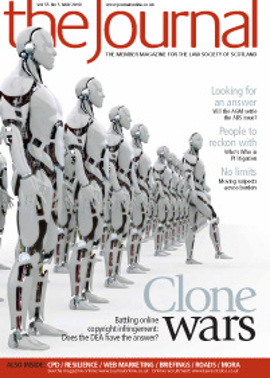Armed with the law

In R(JS) (Sri Lanka) v Secretary of State for the Home Department [2010] UKSC 15 the Supreme Court was asked to consider the Secretary of State’s application of the article 1F(a) exclusion clause in the 1951 Geneva Convention relating to the Status of Refugees. This clause provides that an individual who meets the criteria of the refugee definition will be excluded from refugee status, if there “are serious reasons for considering that he has committed a crime against peace, a war crime, or a crime against humanity”. The Supreme Court unanimously dismissed an appeal by the Secretary of State and held that the asylum seeker, JS, should have his asylum application redetermined.
JS had became involved with the Liberation Tigers of Tamil Eelam (LTTE) at the age of 10. From age 16 until 26 he was involved in military operations against the Sri Lankan army. He was sent to Colombo incognito in 2006, where his presence was discovered. He then departed for the UK, where he sought asylum.
Complicity by membership?
His application was refused by reference solely to article 1F(a), as applied by the Immigration and Asylum Tribunal in Gurung [2002] UKIAT 04870 (starred). The Secretary of State reasoned that having remained in the LTTE beyond the age of 18, JS was a voluntary member of the organisation. Following the approach of Gurung that “voluntary membership of an extremist group could be presumed to amount to personal and knowing participation, or at least acquiescence, amounting to complicity in the crimes in question”, JS was excluded from refugee status.
The Supreme Court, Lord Brown delivering the leading judgment, followed the approach of the Court of Appeal by taking the starting point to be the relevant international criminal law. Both the Court of Appeal and the Supreme Court should be commended for their careful consideration of the Rome Statute of the International Criminal Court (ICC), and the statute and case law of the International Criminal Tribunal for the former Yugoslavia (ICTY). Ultimately, however, the factual situation in the present case was not covered by the statutes, nor could parallels be drawn from the ICTY cases. His Lordship, therefore, turned to domestic law and examined the Gurung decision more fully.
The court concluded that the tribunal in Gurung had applied the wrong test when determining whether there were “serious reasons for considering” an asylum applicant was a war criminal. The approach of the tribunal had been to effectively establish a presumption of criminal complicity based on little more than voluntary membership of an organisation, provided the decision maker deemed that organisation to have “aims, methods and activities… predominantly terrorist in character”. Lord Brown found that the LTTE was not such an organisation, and furthermore, he criticised such presumptions as being “all too liable to lead the decision maker into error”.
Contributions count
His Lordship then set out the correct approach to article 1F(a), which was agreed by Lords Hope, Rodger, Walker and Kerr. The nature of the organisation is to be considered as only one of the relevant factors in play. The exclusion applies to those who, in addition to having the necessary mens rea, make “a substantial contribution to” a war crime, knowing that their acts or omissions facilitate that crime. This can include acts such as the supply of funds to an organisation known to be committed to achieving its aims through the commission of such crimes, or any substantial assistance to its effective functioning. Thus, only those who have “voluntarily… contributed in a significant way to the organisation’s ability to pursue its purpose of committing war crimes, aware that his assistance will in fact further that purpose” are covered by the exclusion.
Notwithstanding this judgment, it is clear in the Refugee Convention, and in the guidance on the Convention issued by the United Nations High Commission for Refugees (UNHCR), that those who commit war crimes exclude themselves from refugee status. Those who are guilty of atrocities should not be entitled to the international protection which is afforded to refugees. However, the Secretary of State should not presume that all those who become involved in armed struggles against their own government are guilty of war crimes. It is evident in international law that this is not the case. By ensuring that there is no automatic presumption against asylum applicants who have voluntarily been involved in such struggles, the Supreme Court has taken positive a step to ensure a fuller and fairer process by the Home Office in considering such applications.
- Jennifer Dunlop, Scottish Human Rights Law Groupֻ
In this issue
- Pro bono: making a difference to people's lives
- Goodbye sick note
- Like tears in the rain
- On level ground?
- Keeping tabs on the EU
- Counterstrike
- Supporting excellence
- The final roll of the dice
- Death and taxes
- Pick of the bunch
- Train to gain
- Law reform update
- Meeting the Deans
- Family feeling
- From the Brussels office
- Bank liaison back on track
- Resilience is the key
- Cast your net
- Outside the box
- Ask Ash
- Are you... experienced?
- Handover standoff
- Investing in dispute
- When Nature takes over
- Spilled milk?
- Armed with the law
- When is a "deed" not a deed?
- Blocked in
- Website review
- Book reviews
- Calling time on mora
- Raiders of the lost roads?






